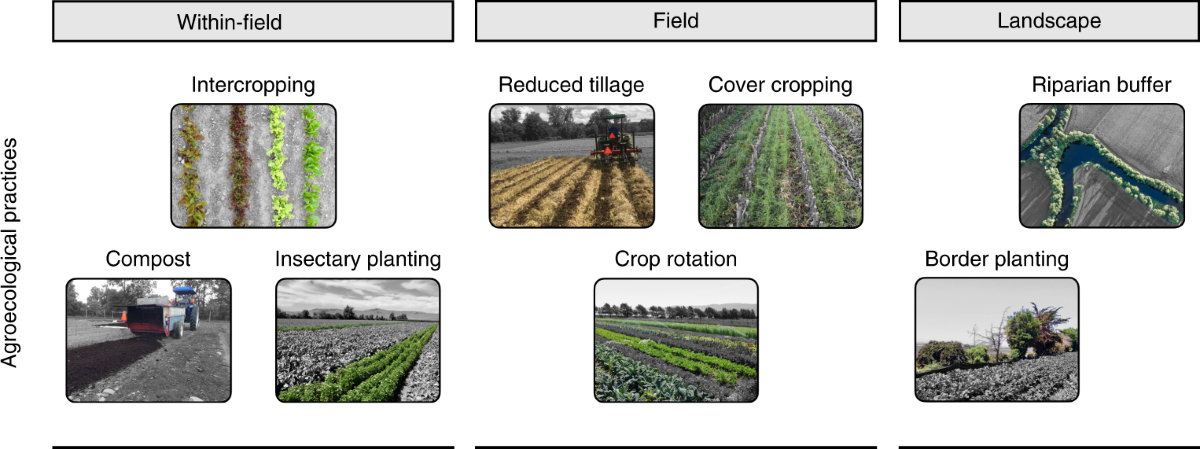Agroecological Farming refers to a set of farming practices and principles that apply ecological science to agriculture to create productive, resilient, and sustainable food systems. It emphasizes biodiversity, local knowledge, reduced chemical inputs, soil health, and circular nutrient flows.
Common techniques include crop diversification, intercropping, agroforestry, composting, and integrated pest management. Agroecology also stresses the social dimensions of farming, promoting food sovereignty, farmer empowerment, and equitable access to resources.
Agroecological approaches have been particularly impactful in smallholder farming systems, enhancing yields while improving environmental outcomes and reducing dependence on external inputs.These systems are adaptable across climates and have gained traction through global movements, grassroots networks, and international policy platforms.

